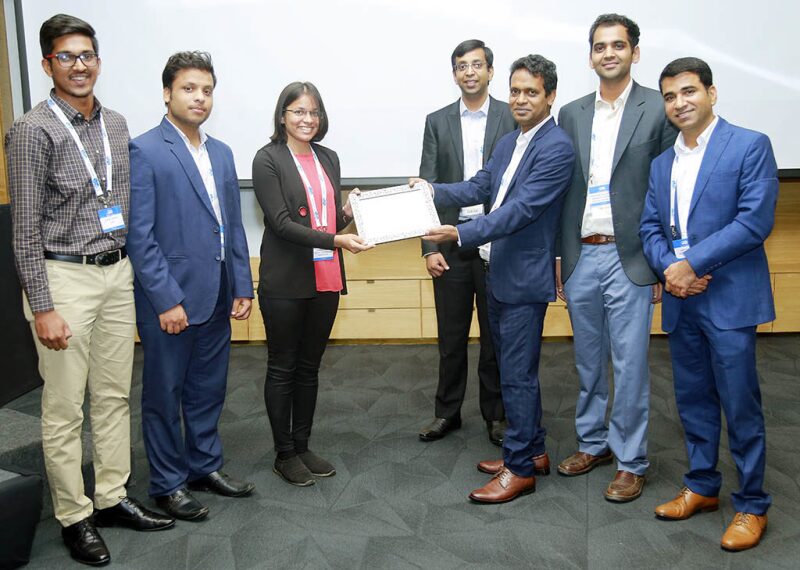A hackathon is commonly known as “ethical hacking” in which teams come together to work on solutions with the help of digital technologies. SPE Dubai hosted the first hackathon alongside the second edition of the annual SPE Workshop on digitalization themed “Disruption or Evolution?” which took place from 8 to 10 July in Bengaluru, India.
Digital transformation is the topic of the moment. Increasingly, easy access to high-performance digital infrastructure and sophisticated tools at low costs have allowed modern technology to be applied to various areas of day-to-day work and operations. The focus of the workshop was to discuss developing and applying cost-effective digital and modern technologies to gain strategic advances for the oil and gas industry.
To begin the Hackathon, an announcement of the problem statement was made through the workshop website and submissions were accepted from groups of five or less young professionals and/or university students.
The problem statement described an abandoned field in Norway with financial and production data, which could be downloaded and reviewed by the teams. They were challenged to generate a solution to six questions focused on field recovery, including production forecast, financial traits, reservoir quality index, and digital technologies used for solution development.
Using the data from the field and the financial data provided to them, the teams were asked to provide the following:
Generate reservoir quality index
Develop optimized production forecast profile
Ultimate recovery
Development strategy – use of secondary and tertiary recovery – for maximum net present value generation. If any changes and modifications to wells (new wells, producer to injector, etc.) are suggested, provide the strategy/justification
Identify key parameters for your solution and develop a dashboard to showcase and justify analysis and prediction
Account of digital technologies used for solution development (e.g. cloud, machine learning, advanced analytics, and visualization)
A number of submissions from were received for the competition. Team Halliburton and Team Oil’believable were selected as finalists to present at the workshop and answer delegates’ questions.
Team Halliburton comprised five young professionals—Abhijeet Bhardwaj, Keerthiga Jeevanandham, Soumi Chaki, Shreshth Srivastav, and Samiran Roy—from Landmark Software and Services, Halliburton, Bengaluru. Team Oil’believable comprised four students—Akanksha Gupta, Anurag Ray, Kunal Singhal, and Nilesh Singhal—from University of Petroleum & Energy Studies, Dehradun, India.
Team Halliburton came out victorious after a tough challenge from Team Oil’believable who held their own throughout the Q&A and showed their confidence to gain the second place in the competition.
Some of the key points from the winning solution by Team Halliburton were:
Using logging-while-drilling logs for limited number of wells would save millions of dollars
Using synthetic reservoir property model for porosity and permeability calculation as it uses machine learning and artificial intelligence techniques and reduces time
The decision to conduct workshops on the digitalization topic was initiated by the SPE Bangalore Section in 2012 and the workshop attracted 97 delegates. It was relaunched in 2018 with the theme “Digitalisation: Driving Data to Decisions,” which welcomed 121 delegates. This year’s workshop had 98 delegates participating from 26 companies and six countries.
Seven technical sessions were held as part of the workshop with 24 discussion leaders. The panel session had speakers from Cairn Oil & Gas, Vedanta Limited; Emerson Automation Solutions–Paradigm Geophysical India; Honeywell Connected Plant; Shell–India; and Wipro. There were also four special keynote addresses by representatives of Landmark Software and Services, Halliburton, Schlumberger, Tachyus, and TheDataTeam.
The workshop committee is keen to host the next edition of the workshop tentatively planned for June/July 2020 at Bengaluru with the same format of a Hackathon competition followed by technical and panel sessions.
For queries and interests contact spedub@spe.org.
[The article was sourced from the author by TWA Editor Bruno Rivas.]

